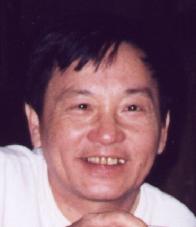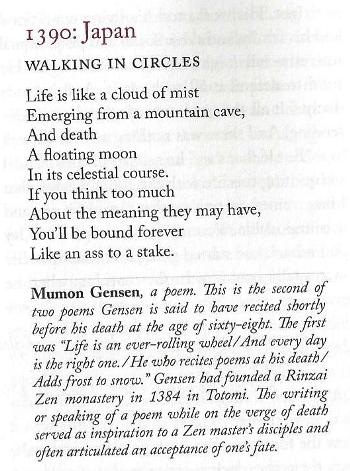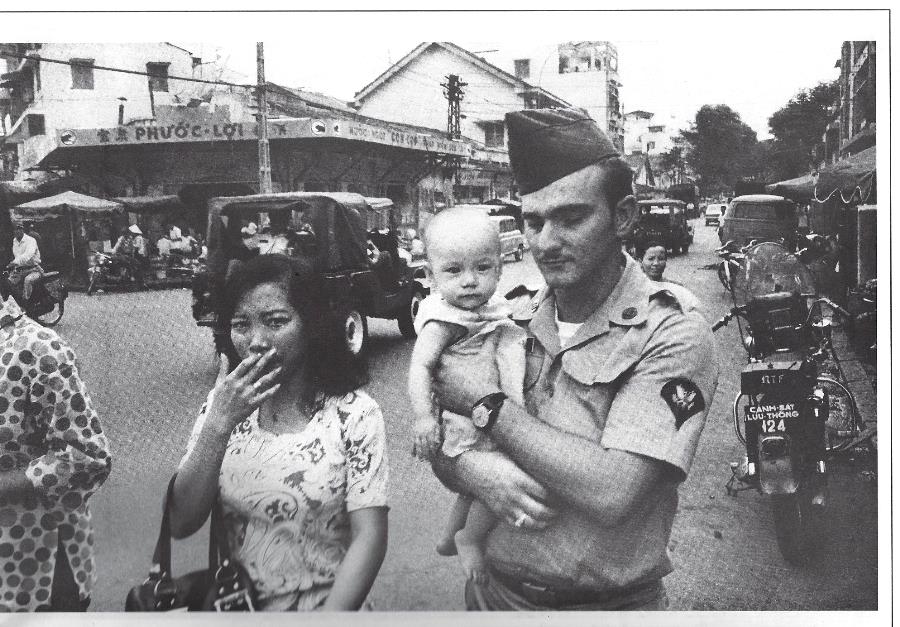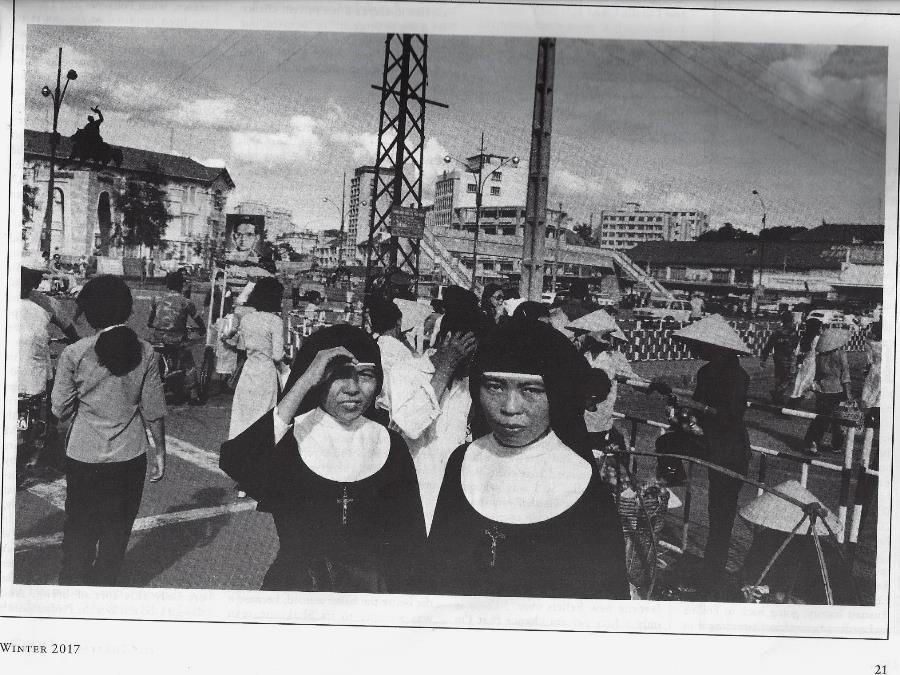Nguyễn Quốc Trụ
Sinh 16 tháng Tám,
1937
Kinh
Môn,
Hải
Dương
[Bắc
Việt]
Quê
Sơn
Tây
[Bắc
Việt]
Vào
Nam
1954
Học
Nguyễn
Trãi
[Hà-nội]
Chu Văn An,
Văn Khoa
[Sài-gòn]
Trước
1975
công
chức
Bưu
Điện
[Sài-gòn]
Tái
định
cư năm
1994
Canada
Đã
xuất
bản
Những
ngày
ở Sài-gòn
Tập
Truyện
[1970,
Sài
Gòn,
nhà
xb Đêm
Trắng
Huỳnh
Phan
Anh
chủ
trương]
Lần
cuối,
Sài-gòn
Thơ,
Truyện,
Tạp
luận
[Văn
Mới,
Cali.
1998]
Nơi
Người
Chết
Mỉm Cười
Tạp
Ghi
[Văn
Mới,
1999]
Nơi
dòng
sông
chảy
về phiá
Nam
[Sài
Gòn
Nhỏ,
Cali,
2004]
Viết
chung
với
Thảo
Trần
Chân
Dung
Văn Học
[Văn
Mới,
2005]
Trang Tin Văn, front page, khi quá đầy,
được
chuyển
qua Nhật
Ký
Tin Văn,
và
chuyển
về
những
bài
viết
liên
quan.
*
Một
khi
kiếm,
không
thấy trên
Nhật
Ký,
index:
Kiếm
theo
trang
có
đánh
số.
Theo
bài
viết.
Theo
từng
mục,
ở đầu trang
Tin
Văn.
Email
Nhìn
lại
những
trang
Tin
Văn
cũ
1
2
3
4
5
Bản quyền Tin Văn
*
Tất
cả bài
vở
trên
Tin Văn,
ngoại
trừ
những
bài
có
tính
giới
thiệu,
chỉ
để sử dụng
cho cá
nhân
[for personal
use], xài
thoải
mái
[free]
Liu
Xiaobo
Elegies
Nobel
văn
chương
2012
Anh
Môn
Kỷ niệm 100 năm sinh của Milosz
IN MEMORIAM
W. G. SEBALD
http://tapchivanhoc.org
|
Happy New Year
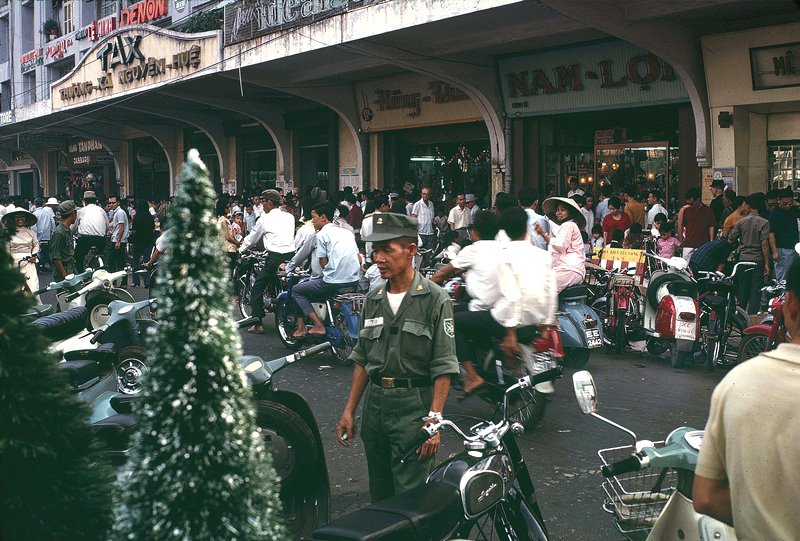
Noel 1968,
Mậu Thân, @ Thương Xá TAX


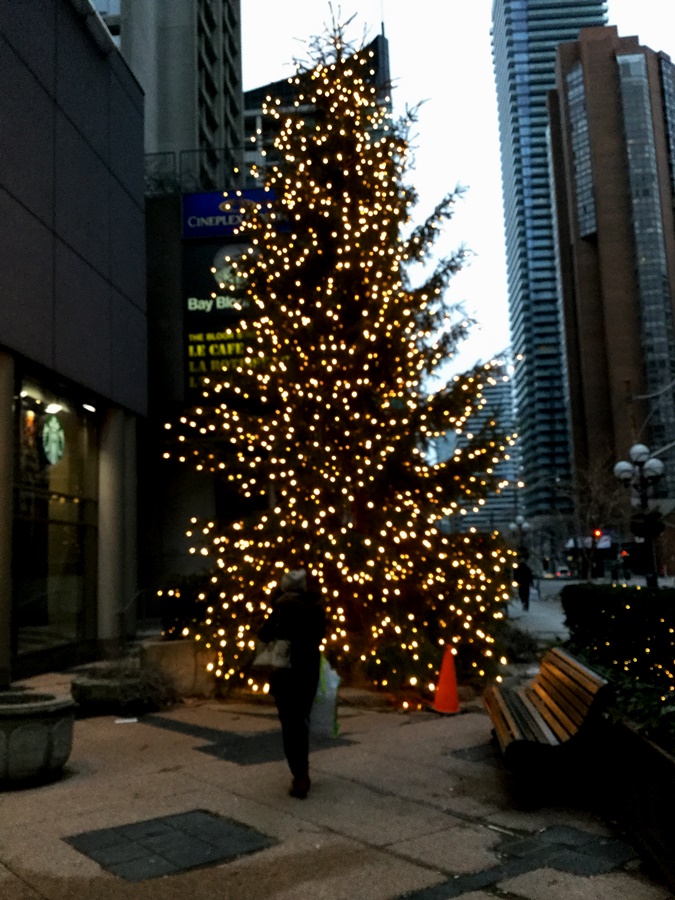
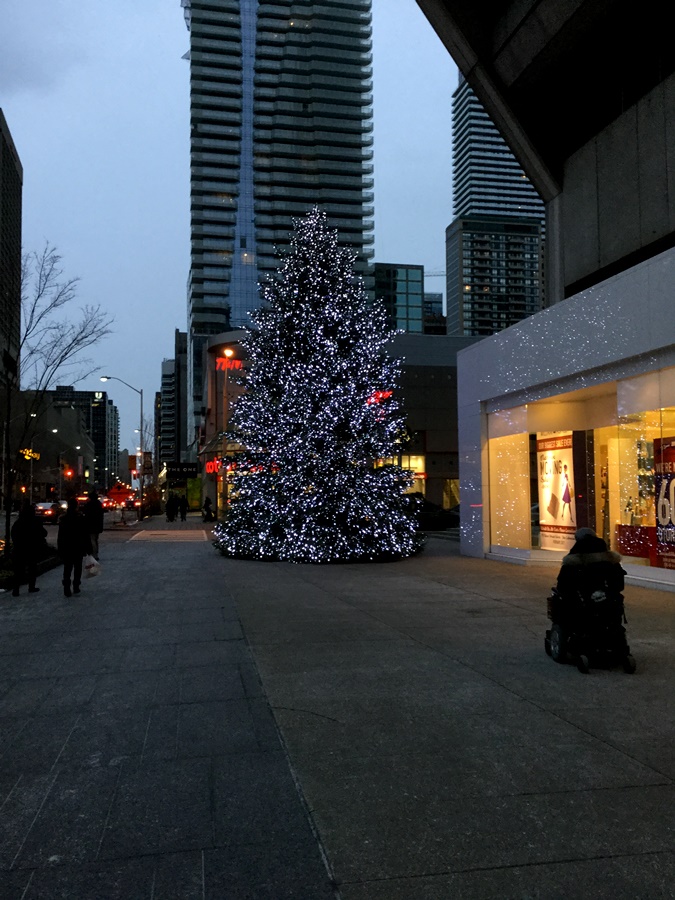
31.12.2016
Mưa Sài Gòn, hình
chụp góc Lê Lợi và Công Lý, ngày
12 tháng 6 năm 1968.



Happy New Year


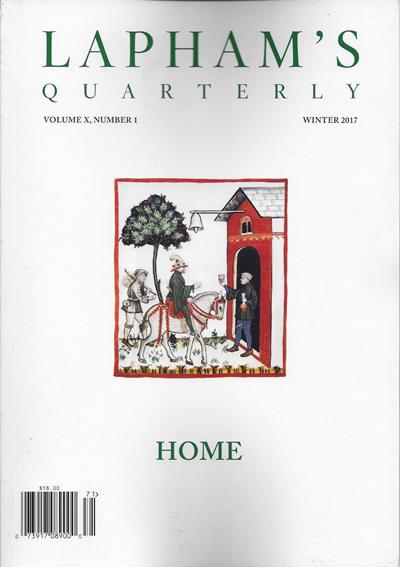
Nhà mà không
có cái ghế bành thật thoải mái, và một
người ngồi đến nhẵn thín, thì căn nhà đó đếch
làm sao có được một linh hồn.
A house that does not have one worn, comfy chair in it is soulless.
Mary Sarton, 1973
Đọc thì bèn nhớ đến
NXH
Tớ nghĩ là Camus chỉ ra rằng,
có thể ngồi trong cái ghế bành của NXH, và
sống 1 cuộc đời phiêu lưu lớn đến tận Tiểu Sài Gòn,
đến San Jose, rồi mất ở đó!
I think it was Camus who pointed out that it is possible to lead a
life of great adventure without leaving your desk
Geoff Dyer: Working the Room,
trong bài viết Ryszard Kapuscinki: African Life
Nhớ là Hemingway có
phán, thì về nhà để treo cái nón.
Ui choa, thèm về nhà – thì tất
nhiên, ở Saigon- chỉ để treo cái nón!
Bài của Dyer về Kạp, thần
sầu. Cũng ngắn thôi. Sẽ đi liền.
Theo Dyer có thể phát cho Kap hai Nobel, 1 văn chương,
1 hoà bường
http://www.tanvien.net/TG_TP/Milosz_Kap_To_Hoai.html
[Ở xứ Bắc Kít, thì
cảm thấy ra làm sao]
Thú thực,
cái nhìn như bây giờ của Gấu với những Tô Hoài,
Kap, là mới có đây thôi, sau khi bị 1 em Bắc
Kít mắng, khi viết về Kap.
Lúc đó, Gấu chưa đọc Kap, và cái bài
trên TV về ông, là tóm tắt 1 bài viết
trên TLS, khi ông mất.
Tờ TLS không ưa Kap, và còn không ưa nhiều
người nữa, trong có Linda Lê, thí dụ.
Chỉ 1 khi bị em Bắc Kít “mắng”, Gấu mới tìm đọc Kap,
cùng lúc, nhìn lại Tô Hoài. Cái
bài đầu tiên Gấu đọc Kap, là 1 truyện ngắn, [ký
thì đúng hơn], đăng trên 1 số Granta. Đọc, rồi
nhớ lại những năm chiến tranh, khi còn nhỏ, ở miền quê Bắc Kít,
và thế là bổi hổi bồi hồi, nhận ra… Gấu, anh cu Gấu, Bắc Kít,
nhà quê, trước khi được về Hà Nội học!
Hà, hà!
Ryszard Kapuscinski
Granta, Winter 2004
Số Granta về Mẹ, có bài viết
của Ryszard Kapuscinski, When there
is talk of 1945 [Nói về năm 1945 khi nào nhỉ?], thật
là tuyệt, với Mít, vì 1945 đúng là
cái năm khốn khổ khốn nạn của nó.
Ðây là 1 hồi
ức về tuổi thơ của ông, lần đầu nghe bom nổ, đâu biết bom là
gì, chạy đi coi, bị mẹ giữ lại, ôm chặt vào lòng,
và thì thào, cũng một điều đứa bé không
làm sao hiểu nổi: “Chết ở đó đó, con ơi, There’s
death over there, child”.
Những năm tháng chiến
tranh trùng hợp với ấu thời, và rồi, với những năm đầu của
tuổi trưởng thành, của tư duy thuần lý, của ý thức.
Thành thử với ông, chiến tranh, không phải hòa
bình, mới là lẽ tự nhiên ở đời, the natural state. Và
khi mà bom ngưng nổ, súng ngưng bắn, khi tất cả im lặng, ông
sững sờ. Ông nghĩ những nguời lớn tuổi, khi đụng đầu với cái
im lặng đó, thì bèn nói, địa ngục chấm dứt, hòa
bình trở lại. Nhưng tôi không làm sao nhớ lại
được hòa bình. Tôi quá trẻ khi đó. Vào
lúc chiến tranh chấm dứt, tôi chỉ biết địa ngục.
Một trong những nhà
văn của thời của ông, Boleslaw Micinski, viết, về những năm đó:
Chiến tranh không chỉ làm méo mó linh hồn, the
soul, của những kẻ xâm lăng, mà còn tẩm độc nó,
với thù hận, và do đó, chiến tranh còn làm
biến dạng những linh hồn của những kẻ cố gắng chống lại những kẻ xâm
lăng”. Và rồi ông viết thêm: “Ðó là
lý do tại sao tôi thù chủ nghĩa toàn trị, bởi
vì nó dạy tôi thù hận”.
Trong suốt cuộc chiến, hình
như Bắc Kít chưa từng quên hai chữ thù hận. Nhưng
hết cuộc chiến, vẫn không bao giờ quên cả. Thành thử,
cái còn lại muôn đời của cuộc chiến Mít, theo
GNV, chỉ là thù hận.
Một người như Kỳ Râu
Kẽm, “bó thân về với triều đình”, như thế, mà
đâu có yên thân. Chuyện ông bị đám
hải ngoại chửi thì còn có lý, vì rõ
là phản bội họ. Nhưng khốn nạn nhất là
lũ VC chiến thắng, chúng vẫn giở cái giọng khốn nạn ra, thôi
tha cho tên tội đồ. Cái “gì gì” đứa con hư đã
trở về nhà!
Tô Hoài by Nhật Tuấn
Note: Viết về Tô Hoài
như thế này thì sẽ không làm sao cắt nghĩa
được sự hiện hữu của những tuyệt tác của ông, nhất là,
“Ba Người Khác”.
Theo Gấu, đọc Tô Hoài, thì nên đọc song
song với những Milosz, Ryszard Kapuściński…
Đây là 1 đề tài
lớn của thế kỷ, và của Mít. Cả 1 nền văn học Miền Bắc, sau
chỉ còn lại, được, ở Nguyễn Tuân, Tô Hoài, và
1 phần nào, ở Nguyễn Khải.
Về Milosz, có thể đọc
mấy bài sau đây:
The wiles of
art
To wash
Đề tài này, mới
đây, Gấu được đọc cuốn của Todorov, mới cực thú: Hồi Ức như
Thuốc Chữa Cái Ác, Cái Quỉ Ma, Memory as a Remedy
for Evil. Ba Người Khác
là thứ hồi ức đó, cho/do chính Tô Hoài,
1 tên Đại Ác kể ra!
TV sẽ giới thiệu chương viết
về Cambodia và Khờ Me Đỏ.
How It Felt to Be There
Neal Ascherson
RYSZARD
KAPUSCINSKI: A LIFE
by Artur Domoslawski, translated by Antonia Lloyd-Jones.
Verso, 456 pp., £25, September, 978 I 84467 858 7
There are two large question marks
over Kapuscinski. The first is about his writing. Did he make things up?
Did he manufacture quotes, say he had been to places when he hadn't, describe
scenes that never happened? If so, did he tell lies in his routine reporting,
as an agency man for the Polish Press Agency and Polish newspapers? Or did
he reserve for his famous books a style of 'literary reportage' in which
embroidery and even manipulation of the facts were skillfully used to create
a reality 'truer than the truth'? The second question mark is about his
politics: what he did and said when he was young, and how he covered it up
later. But here it's important to note a difference in the emphasis given
to those two question marks. For foreigners, especially Anglo-Saxon ones,
the real Kapuscinski problem is veracity. How should we read books like The
Emperor (based, according to him, on interviews with Haile Selassie's courtiers
after his empire had been overthrown) now that it seems unlikely that those
interviews took place as he described them?
Tờ Điểm Sách London, số 2 August,
2012 đọc tiểu sử của RYSZARD KAPUSCINSKI.
GCC bị tay này ám ảnh!
Và cứ nghĩ tới bạn của Gấu là Cao Bồi!
Có hai dấu hỏi to tổ bố về Kapuscinski: Thứ nhất là
về những gì ông viết. Không lẽ ông bịa, bịp?
Thứ nhì là về thái độ chính trị của ông
Du lịch cùng với Herodotus
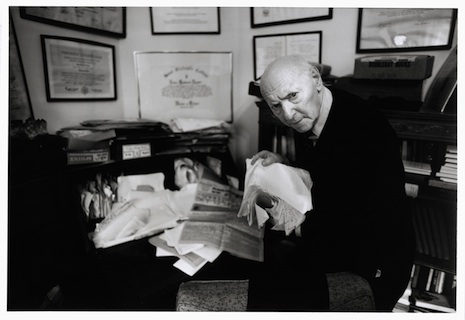
Kapuscinski: A Life
RYSZARD KAPUSCINSKI’S colourful
writing, especially about Africa, gained him a global reputation in the
early 1980s. He became celebrated for his descriptions of Haile Selassie’s
tenebrous court in Ethiopia, the overthrow of the shah of Iran, and for
his knack of using vignettes of humble lives to tell big stories about poor
countries.
He was also slippery about his
own beliefs, careless with facts, a loyal servant of a totalitarian regime,
and cruel to those who loved him. That is the picture painted in Artur
Domoslawski’s compelling and controversial biography, published in Poland
in 2010 and now in English.
Mr Domoslawski is not a doctrinaire
anti-communist, for whom any collaboration with the regime is unforgivable
treachery. Nor is he one of those who prizes the beauty of Kapuscinski’s
prose over his professional lapses. Mr Domoslawski was a friend of the
great man; but resolved to treat his life as a subject for serious inquiry,
setting out with an open mind and detailed knowledge, and adding more insights
and evidence along the way.
The result is an exemplary explanation
of what made Kapuscinski tick. Growing up in Pinsk, in the (now lost)
eastern borderlands of pre-war Poland, he was caught between the hammer
and the anvil in the war years. The hungry little boy learned that the
brave die first. He saw neighbours tortured by the Nazis and others deported
by the Soviets. He later claimed (untruthfully) that his father had escaped
death at Katyn, where the Soviets killed more than 20,000 captured Polish
officers and reservists. But why did Kapuscinski, so insightful about others,
never give his own views on Stalin? Or on his decades as a communist-party
member? He joined as a youth and left only in 1981.
The experience of arbitrary
power and then political change at home did much to shape his understanding
of events abroad. His sympathy for victims of colonialism in Africa reflected
Poland’s captivity in the Soviet empire. His depiction of the absurdities
of the shah’s Iran was a clear critique of decaying Polish bureaucratic
socialism.
Freedom and the hard currency to travel
were rare privileges in the post-war decades. That meant loyalty. Kapuscinski
joined the Solidarity cause in 1980. But he was no dissident. Communism
was disappointing, but not diabolical. The system made mistakes, but they
were “our mistakes,” he argued.
Kapuscinski was not a typical
foreign correspondent: he went on his first trip, to India, speaking no
English. Unlike his glitzy Western counterparts, he travelled by bus and
lived in cheap hotels. Covering wars, he sometimes carried a gun, and used
it. He wrote regular confidential reports for the authorities and personally
briefed the party’s central committee. He sometimes sat on, or slanted,
stories vital to the communist cause, such as Cuban involvement in the
wars of southern Africa. He helped the Polish spy agency—not much, fans
say, and no worse, perhaps, than Western journalists did on their side.
But it all stains his reputation.
His personality is another puzzle.
A modest manner belied a detachment that shaded into arrogance. He was
a dreadful father. Absences and affairs tested sorely his wife’s loyalty.
Many who counted him as a friend found they remembered how he listened,
not what he confided.
A lack of self-confidence meant
that he longed to be liked and hated saying no. That helped him keep powerful
protectors who eased him through the thickets of Polish bureaucracy. It
also led him, oddly, to cut passages in the American edition of a book
that might have offended the CIA. He habitually sacrificed facts for effect.
He never corrected false assertions that he had “befriended” Che Guevara
and Patrice Lumumba. This hardly helped him in the unforgiving climate of
post-1989 Poland.
The translation by Antonia Lloyd-Jones
makes the sweep and tone of Mr Domoslawski’s Polish readable, without
sacrificing its curious, to English eyes, use of the present tense and
rhetorical questions. Readers feel sympathetic to the man, though bleakly
aware of his flaws. The playfulness of a gifted writer,
however delicious to read, can have victims. For the living, exaggerations
and inventions are hurtful, or worse, while the dead cannot complain. Having grown up in a system built on
lies, it is odd that Kapuscinski did not have more regard for the truth.
Lớn lên, trưởng thành,
trong 1 hệ thống được xây dựng bằng dối trá, lạ làm
sao là, K đếch thèm để ý đến chân ný!
Tuyệt!
Me-xừ
Nhật Tuấn không hiểu được điều này, nên cứ xỉ vả Tô
Hoài hoài!
Tô Hoài cũng có
thể phán như sau đây, về cái chuyện cứ đi nước ngoài
hoài!
Freedom and the hard currency to travel
were rare privileges in the post-war decades. That meant loyalty. Kapuscinski
joined the Solidarity cause in 1980. But he was no dissident. Communism
was disappointing, but not diabolical. The system made mistakes, but they
were “our mistakes,” he argued.
Tự do và đô la
Mẽo để đi dong chơi xứ người là những đặc quyền
những năm hậu chiến. Và nó có nghĩa là trung
thành. K gia nhập công đoàn Đoàn
Kết năm 1980. Nhưng ông đếch phải thứ ly khai. CS thì tởm, nhưng
chưa đến nỗi quỉ ma. Hệ thống có phạm lỗi lầm, đó là
“những lỗi lầm của chúng ta”, K vặc lại... Nhật Tuấn!
Sự khác biệt giữa Nhật
Tuấn, và Tô Hoài, là những tác phẩm.
Một giả, một thực. Với K & TH, đều là những tuyệt phẩm.
Chẳng có
chỗ cho cả hai, Brodsky và chủ nghĩa CS, trong cái xứ sở
thật rộng lớn đó. Bè lũ VC Nga bực bội với tất cả những gì
Brodsky làm, [cả đến chuyện đi ị, như nhà thơ NCT đã
từng bực, đúng vào ngày sinh nhật Bác]. Andrei Sergeev, bạn của Brodsky,
sau đó viết: Nhà chức trách không thể làm
bất cứ điều chi ngoài chuyện bực, với tất cả những gì Brodsky
làm, không làm, đi tản bộ loanh quanh, đứng, ngồi
ở bàn, nằm xuống giường, và ngủ. Brodsky vẫn cố tìm
đủ cách xb thơ của ông, vô ích. Tới mức, hai
ông cớm KGB gật đầu, chúng tao sẽ in thơ của mày, trên
loại giấy đặc biệt, bản quí, dành cho "bạn quí" của
mày, nếu mày đi một đường báo cáo về những
ông giáo sư, bạn của mi, chỉ là báo cáo
xuông, những chuyện làm xàm ba láp thôi.
The Gift
Thất Hiền
https://hoanghannom.com/2016/12/27/remordimiento-por-cualquier-muerte/
Hối tiếc về
bất kỳ cái chết
Chẳng có ký ức và hy vọng,
vô hạn, trừu tượng, gần như tương lai,
người chết chẳng phải một người nào chết: họ là cái
chết.
Như vị Chúa của các nhà thần bí,
Người mà họ phủ nhận mọi điều nói về Người,
người chết xa lạ ở mọi nơi
chẳng là gì ngoài sự diệt vong và thiếu
vắng của thế giới.
Chúng ta cướp khỏi họ mọi thứ,
chúng ta chẳng để lại một màu sắc hay một âm tiết:
đây là cái sân đôi mắt họ không
còn chia sẻ,
kia là vỉa hè nơi hy vọng họ lẩn khuất,
Ngay cả những gì chúng ta nghĩ
có thể họ cũng đang nghĩ;
chúng ta chia phần như những tên trộm
của cải của đêm và ngày.
Note: Đọc, "chẳng có ký
ức và hy vọng... ", là Gấu thấy có cái gì
kỳ kỳ rồi, và nhớ là bài thơ này Gấu đã
dịch rồi. Bèn gõ Bác Gúc, và bèn
coi lại luôn phần nguyên tác Tây Bán Nhà:
REMORDIMIENTO POR
CUALQUIER MUERTE
Libre de la memoria y de la esperanza,
ilimitado, abstracto, casi futuro,
e1 muerto no es un muerto: es la muerte.
Como el Dios de los místico,
de Quien deben negarse todos los predicados,
e1 muerto ubicuamente ajeno
no es sino la perdición y ausencia del mundo.
Todo se lo robamos,
no le dejamos ni un color ni una silaba:
aquí está el patio que ya no comparten sus ojos,
allí la acera donde acechó su esperanza.
Hasta lo que pensamos podría estarlo pensando él también;
nos hemos repartido como ladrones
el caudal de las noches y de los días.
http://www.tanvien.net/new_daily_poetry/3.html
Thời Tưởng Niệm
REMORSE FOR ANY DEATH
Free of memory and hope,
unlimited, abstract, almost future,
the dead body is not somebody: It is death.
Like the God of the mystics,
whom they insist has no attributes,
the dead person is no one everywhere,
is nothing but the loss and absence of the world.
We rob it of everything,
we do not leave it one color, one syllable:
Here is the yard which its eyes no longer take up,
there is the sidewalk where it waylaid its hope.
It might even be thinking
what we are thinking.
We have divided among us, like thieves,
the treasure of nights and days.
-W.S.M.
J.L. Borges
Ân hận vì bất cứ 1 cái chết
Thoát ra khỏi cả hồi ức
lẫn hy vọng
Không giới hạn, trừu tượng, xém 1 tí thì
là tương lai
Thi thể của ai đấy thì đếch phải là ai đấy: Nó
là cái chết.
Như Chúa Tể của những thần bí gia,
Kẻ đếch ai có thể thay thế, theo đám đệ tử này
năn nỉ,
Người chết đếch là ai cả, ở đâu đâu thì cũng
thế
Chẳng là cái chó gì hết, mà chỉ
là mất mát, vắng mặt, ra khỏi thế giới.
Chúng ta lột sạch tất cả, từ "nó": "cái gọi là
người chết đó"
Chúng ta chẳng để lại, một màu sắc, một âm, một
tiết, một… :
Đây là cái vườn mà những con mắt của nó
hết còn để mắt tới nữa
Đây là lối đi, nơi hy vọng của nó đã từng
đặt để
Nó chẳng từng đã từng suy tư, như chúng ta đang
suy tư?
Như những tên trộm,
Chúng ta chia sẻ, cấu xé, giành giựt,
Giữa chúng ta,
Kho tàng của những ngày
Và những đêm.
J.L. Borges
"Free of", libre de la .... làm sao lại dịch là "chẳng có"?
Chẳng cần nguyên tác, chẳng cần bản tiếng Anh, chỉ đọc
bản tiếng Mít không
thôi, là đã thấy nhảm rồi:
Chẳng
có ký ức!
NXH's Poems of the Night
Dịch thoáng:
Đời thì như "Mù Sương,
Sương Mù"
Thoát ra từ hầm núi
Và Chết,
Như “Người Đi Trên Mây”
Trên đường tới Thiên Đàng
Nhưng mà đừng suy tư nhiều quá về chúng
Nếu không muốn trở thành cù lần như GCC!
Portrait GCC

như vậy,
anh đi đã 2 năm. phùng nguyễn chụp tấm ảnh này
trong vườn nhà em, cũng theo anh đi, đã 1 năm.
2 Years Ago
See Your Memories
vậy là
hết nghe anh than: chán quá, anh chỉ muốn chết
giờ thì
anh đã chết và không còn gì để làm
anh chán nữa
nhớ lúc trước Quỳnh Như hay ‘quát’ anh: em đây
khô...
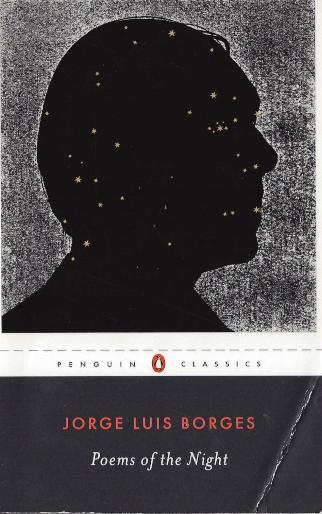
Bài thơ của Borges có trong Poems of the Night,
Gấu mua hình như cùng lúc với tập Thời Tưởng Niệm,
dịch lai rai, hy vọng bạn quí trong chuyến đi xa, có cái
để đọc.
Một vị độc giả vừa nhặt giùm 1 hạt sạt
from Seedtime
Let silent grief
at least
Hatch out that last chance
Of light.
Let that extremity
of wretchedness
Preserve the chance of flowers.
Translated .from
the French by Michael Hamburger
Ít nhất thì
hãy để nỗi đau thương âm thầm
Đóng sập cơ may cuối cùng của
Ánh sáng.
Hãy để tột
cùng bất hạnh
Gìn giữ cơ may của những bông hoa.
Tuyệt!
C. H. SISSON (1914-2003)
... "hatch
out" là tách ra, hé ra, nở ra chứ đâu có
"đánh sập" !! Thời gian giúp cho ánh sáng
có cơ may ngoi lên từ nỗi đau cũng như biết đâu chừng
có những đóa hoa ngoi lên từ sự khắc nghiệt .
HAPPY NEW YEAR TO
YOU AND YOUR FAMILY
Thơ
Mỗi
Ngày
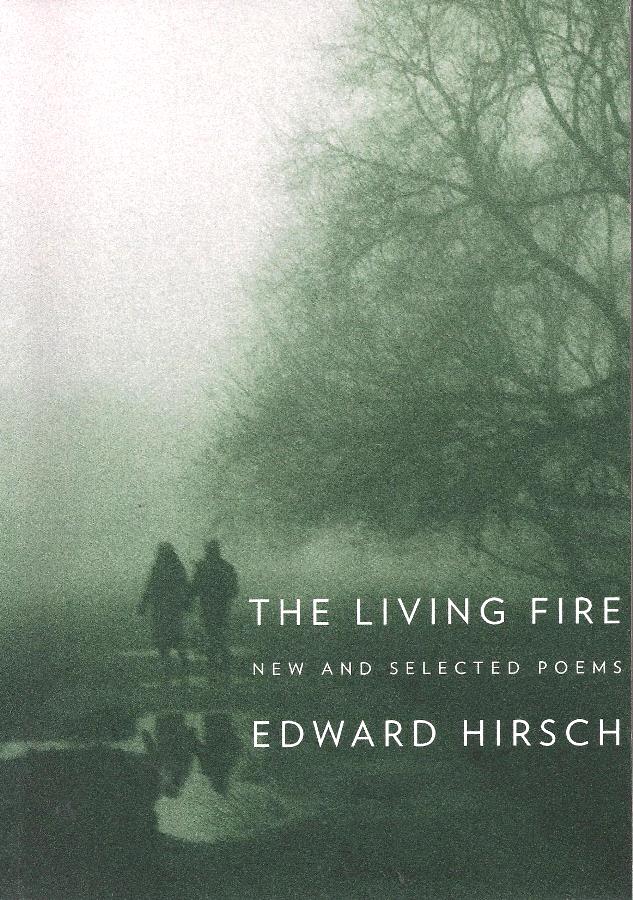
For the Sleepwalkers
Đêm
đêm, như 1 tên mộng du, một mình mi tìm cách
trở về lại Saigon, trở lại Quán Chùa....
Tonight I want
to say something wonderful
for the sleepwalkers who have so much faith
in their legs, so much faith in the invisible
arrow carved into the carpet, the worn path
that leads to the stairs instead of the window,
the gaping doorway instead of the seamless mirror.
I love the way that sleepwalkers are willing
to step out of their bodies into the night,
to raise their arms and welcome the darkness,
palming the blank spaces, touching everything.
Always they return home safely, like blind men
who know it is morning by feeling shadows.
And always they wake up as themselves again.
That's why I want to say something astonishing
like: Our hearts are leaving our bodies.
Our hearts are thirsty black handkerchiefs
flying through the trees at night, soaking up
the darkest beams of moonlight, the music
if owls, the motion if wind-torn branches.
And now our hearts are thick black fists
flying back to the glove if our chests.
We have to learn to trust our hearts like that.
We have to learn the desperate faith of sleep-
walkers who rise out of their calm beds
and walk through the skin of another life.
We have to drink the stupefying cup of darkness
and wake up to ourselves, nourished and surprised.
Edward Hirsch: The Living Fire
Đêm nay Gấu muốn phán một điều thật là
cực bảnh tỏng
Dành
cho những tên mộng du đặt quá nhiều niềm tin vào cặp
giò của chúng
Quá nhiều niềm tin vào sự vô hình
Vào... người đi qua tường
Mũi tên khắc
vào tấm thảm,
lối đi rách mòn đưa tới cầu thang thay vì cửa
sổ
lối cửa mở thay vì tấm gương liền
Gấu cực mê cái kiểu mà những tay mộng du
thèm bước ra khỏi cái túi thịt thối tha - từ
của Phật Giáo để gọi cái body thật thơm, thật ngon như múi
mít của… -
và đi vào đêm đen
Tay giơ lên chào mừng bóng tối
Gấu biết đến
tay này, là qua bài thơ tưởng niệm Brodsky. Sau
đó, chơi mấy cuốn của chả. Cực mê Simone Weil, và
mấy tay dính dáng tới Lò Thiêu.
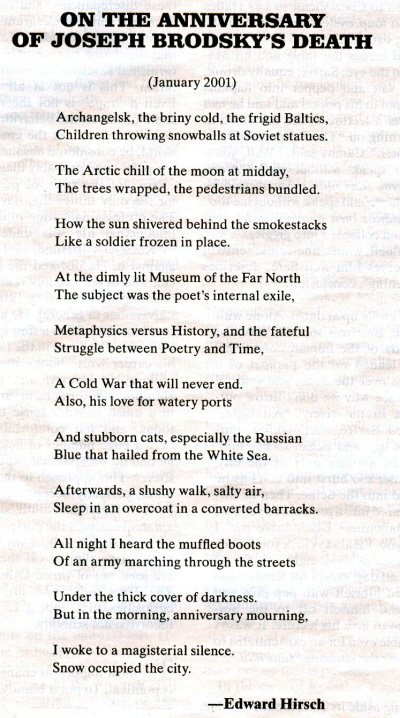
On the Anniversary of Joseph Brodsky’s Death
(January 2001)
Archangelsk,
the briny cold, the frigid Baltics,
Children throwing snowballs at Soviet statues.
The
Arctic chill of the moon at midday,
The trees wrapped, the pedestrians bundled.
How the
sun shivered behind the smokestacks
Like a soldier frozen in place.
At the
dimly lit Museum of the Far North
The subject was the poet’s internal exile,
Metaphysics
versus History, and the fateful
Struggle between Poetry and Time,
A Cold
War that will never end.
Also, his love for watery ports
And
stubborn cats, especially the Russian
Blue that hailed from the White Sea.
Afterwards,
a slushy walk, salty air,
Sleep in an overcoat in a converted barracks.
All
night I heard the muffled boots
Of an army marching through the streets
Under
the thick cover of darkness.
But in the morning, anniversary mourning,
I woke
to a magisterial silence.
Snow occupied the city.
-Edward
Hirsch.
NYRB, Feb 11, 2010
Tưởng niệm Brodsky nhân ngày mất
của ông
January 2001
Archangelsk, cái lạnh
mặn, những con người Baltic nhạt
Trẻ con ném những trái banh tuyết vô những
bức tượng Xô Viết
Cái ớn lạnh Bắc Cực của
mặt trăng vào giữa trưa
Cây bao, bộ hành cuộn.
Mặt trời rùng mình
sau những ống khói
Như một tên lính cứng lạnh ngay tại chỗ
Ở Viện Bảo Tàng Viễn Bắc
lù tù mù ánh đèn
Ðề tài là về cuộc lưu vong nội xứ của nhà
thơ
Siêu hình đấu với
Lịch sử, và
Cuộc chiến đấu thê lương giữa Thơ và Thời gian
Một Cuộc Chiến Lạnh chẳng hề
chấm dứt.
Thì cũng y chang tình yêu của nhà
thơ với những bến cảng sũng nước
Và những con mèo
bướng bỉnh, đặc biệt giống Nga
Xanh, tới từ Bạch Hải
Sau đó, là một
cuộc tản bộ lầy lội trong tuyết, trong không khí mặn mùi
muối
Ngủ trong áo choàng ở những trại lính đã
được cải tạo
Suốt đêm tôi nghe
có những tiếng giầy nhà binh bị bóp nghẹn
Của một đội quân diễn hành qua những con phố
Dưới cái vỏ thật là
dầy của đêm đen
Nhưng vào buổi sáng, cái buổi sáng
tưởng niệm,
Tôi thức giấc, bổ choàng
vào trong 1 sự yên lặng thật là quyền uy, hách
xì xằng.
Tuyết chiếm cứ thành
phố.
A Partial History Of My
Stupidity
By Edward Hirsch
Traffic was heavy coming off the bridge,
and I took the road to the right, the
wrong one,
and got stuck in the car for hours.
Most nights I rushed out into the evening
without paying attention to the trees,
whose names I didn't know,
or the birds, which flew heedlessly
on.
I couldn't relinquish my desires
or accept them, and so I strolled along
like a tiger that wanted to spring
but was still afraid of the wildness
within.
The iron bars seemed invisible to others,
but I carried a cage around inside
me.
I cared too much what other people
thought
and made remarks I shouldn't have made.
I was silent when I should have spoken.
Forgive me, philosophers,
I read the Stoics but never understood
them.
I felt that I was living the wrong
life,
spiritually speaking,
while halfway around the world
thousands of people were being slaughtered,
some of them by my countrymen.
So I walked on—distracted, lost in
thought—
and forgot to attend to those who suffered
far away, nearby.
Forgive me, faith, for never having
any.
I did not believe in God,
who eluded me.
Away from Dogma
I was prevented by a sort of shame from going
into churches ...
Nevertheless, I had three contacts with Catholicism
that really counted.
-SIMONE WElL
1. In Portugal
One night in Portugal, alone in a forlorn
village at twilight, escaping her parents,
she saw a full moon baptized on the water
and the infallible heavens stained with clouds.
Vespers at eventide. A ragged procession
of fishermen's wives moving down to the sea,
carrying candles onto the boats, and singing
hymns of heartrending sadness. She thought:
this world is a smudged blue village
at sundown, the happenstance of stumbling
into the sixth canonical hour, discovering
the tawny sails of evening, the afflicted
religion of slaves. She thought: I am
one of those slaves, but I will not kneel
before Him, at least not now, not with
these tormented limbs that torment me still.
God is not manifest in this dusky light
and humiliated flesh: He is not among us.
But still the faith of the fishermen's wives
lifted her toward them, and she thought:
this life is a grave, mysterious moment
of hearing voices by the water and seeing
olive trees stretching out in the dirt,
of accepting the heavens cracked with rain.
Edward Hirsch: The Living Fire
Tránh xa Tín điều
Tôi bị ngăn trở một cách tủi hổ không
được vô nhà thờ…
Tuy nhiên, tôi có được ba lần tiếp
xúc với Ca Tô Giáo, và điều này
thực sự đáng tính đếm tới
Simone Weil
1. Ở Portugal
Một đêm ở Portugal, một mình tại một ngôi
làng khốn khổ buồn bã vào lúc chập tối,
chạy trốn cha mẹ
Bà nhìn thấy một vừng trăng đầy được nước
rửa tội
Và những khoảng trời không thể sa xuống,
Điểm lấm tấm bởi những đám mây
Sao hôm ở với chiều hôm
Một chuyển động tả tơi
Là những bà vợ ngư phủ kéo nhau
xuống bãi biển
Mang những cây đèn cầy, trong những chiếc
thuyền
Và hát những bài thánh ca
thật là não lòng. Bà nghĩ:
Thế giới này là một ngôi làng
xanh mờ mờ
Vào lúc mặt trời lặn
Sự chấp nhận xẩy chân vào cái giờ
kinh điển thứ sáu
Khám phá ra những cánh buồm hung
hung vào lúc buổi chiều
Cái tôn giáo đau đớn của những kẻ
nô lệ.
Bà nghĩ:
Tôi là một trong những nô lệ
Nhưng tôi không quỳ gối trước Người
Ít ra vào lúc này
Không, với những chân tay bị hành
hạ này, vẫn còn hành hạ tôi
Chúa không hiển hiện trong thứ ánh
sáng lầm than như
thế này
Trong cái thân thể, thịt xương bị sỉ nhục
như thế này
Tuy nhiên niềm tin của những bà vợ ngư
phủ vẫn nhấc bổng Bà lên và,
Bà nghĩ:
Cõi đời này là một nấm mồ
Khoảnh khắc bí ẩn, nghe những giọng nói
bên bờ nước
Nhìn những cành ô liu vươn khỏi
bùn bụi
Và chấp nhận những khoảng trời vỡ vụn ra với
mưa.
Tưởng
Niệm
Tám Bó
What the Last Evening
Will Be Like
You're sitting at a small bay window
in an empty café by the sea.
It's nightfall, and the owner is locking up,
though you're still hunched over the radiator,
which is slowly losing warmth.
Now you're walking down to the shore
to watch the last blues fading on the waves.
You've lived in small houses, tight spaces-
the walls around you kept closing in-
but the sea and the sky were also yours.
No one else is around to drink with
you
from the watery fog, shadowy depths.
You're alone with the whirling cosmos.
Goodbye, love, far away, in a warm place.
Night is endless here, silence infinite.
Edward Hirsch: The Living Fire
Buổi chiều cuối cùng của Gấu
Cà Chớn
Gấu, tản mạn bên ly cà
phe
Ở cái cửa sổ ngó xuống 1 bãi biển
Đêm xuống
Chủ quán đóng cửa tiệm
Nhưng Gấu cứ ngồi lỳ bên cái lò sưởi
Đã mất dần hơi ấm
Và bi giờ Gấu bèn
đi 1 đường xuống bãi biển
Để chiêm ngưỡng 1 lần chót
Những đợt sóng màu xanh nhạt nhòa dần
Hẳn chúng biết thằng chả sắp đi xa, bèn... ăn
theo?
Mi đã từng sống trong những căn nhà xập xệ của Sài
Gòn
Những không gian bé tí –
Những bức tường cứ quây quanh mi –
Nhưng biển trời cũng vưỡn là của mi – và của Mai Thảo
nữa chứ!
Chẳng có thằng chó nào ở đây để cụng
ly với mi
Giữa mù sương của bạn quí của mi
Mi một mình với vũ trụ một
mình
Cả hai thì đều lộng gió!
Bye, bye, em lúc này mới xa vời làm sao, ấm
áp làm sao!
Đêm vô tận
vs
Đời của Gấu, đang tận.
Im lặng đồng đều, và đều vô cùng!
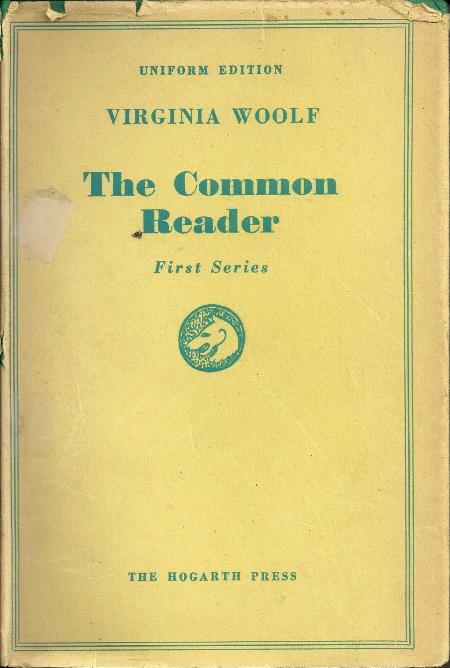
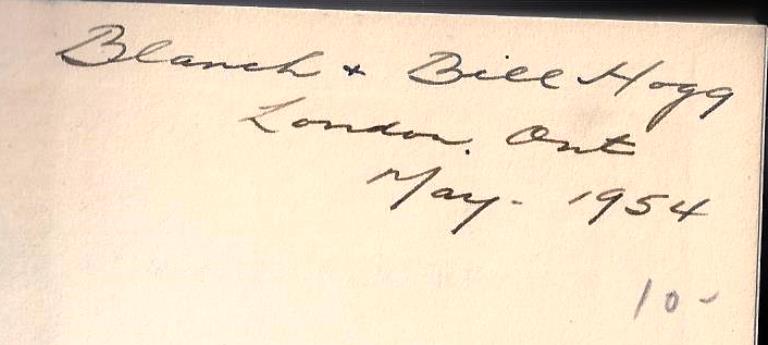 1954: Gấu lên
tầu Đệ Thất Hạm Đội, là cuốn sách đã nằm tại tiệm
sách cũ ở Toronto, chờ Gấu rồi!
1954: Gấu lên
tầu Đệ Thất Hạm Đội, là cuốn sách đã nằm tại tiệm
sách cũ ở Toronto, chờ Gấu rồi!
THE COMMON READER
THERE IS A SENTENCE in Dr. Johnson's Life of Gray which might well be
written up in all those rooms, too humble to be called libraries, yet full
of books, where the pursuit of reading is carried on by private people. "...
I rejoice to concur with the common reader; for by the common sense of readers,
uncorrupted by literary prejudices, after all the refinements of subtilty
and the dogmatism of learning, must be finally decided all claim to poetical
honors." It defines their qualities; it dignifies their aims; it bestows
upon a pursuit which devours a great deal of time, and is yet apt to leave
behind it nothing very substantial, the sanction of the great man's approval.
The common reader, as Dr. Johnson implies, differs
from the critic and the scholar. He is worse educated, and nature has not
gifted him so generously. He reads for his own pleasure rather than to impart
knowledge or correct the opinions of others. Above nil, he is guided by an
instinct to create for himself, out of whatever odds and ends he can come
by, some kind of whole-a portrait of a man, a sketch of an age, theory of
the art of writing. He never ceases, as he reads, to run up some rickety and
ramshackle fabric which shall give him the temporary satisfaction of looking
sufficiently like the real object to allow of affection, laughter, and argument.
Hasty, inaccurate, and superficial, snatching now this poem, now that crap
of old furniture, without caring where he finds it or of what nature it
may be so long as it serves his purpose and rounds his structure, his deficiencies
as a critic are too obvious to be pointed out; but if he has, as Dr. Johnson
maintained, some say in the final distribution of poetical honors, then,
perhaps, it may be worthwhile to write down a few of the ideas and opinions
which, insignificant in themselves, yet contribute to so mighty a result.
VIRGINIA WOOLF
Độc Giả.... Bèo
Độc giả bèo thì khác phê bình gia,
nhà học giả. Học vấn tệ, có khi chỉ là 1 tên
thợ máy nhà giây thép!
SONG
Bob Dylan's Nobel Prize
Christopher Ricks
TODAY,
THE happiest of turmoils all over the world. Rightly a tribute to the
art even more than to the artist, the Nobel triumph- like the art itself-will
endure. For the triumph of genius does the heart good, and not only the
heart.
Some reminders, since one of Dylan's powers
is that of a great reminder.
First, that every artist, insofar as he or
she is great as well as original, has had the task of creating the taste
by which the art is to be enjoyed (Wordsworth's conviction). Second, that
the art of song is a triple art, a true compound. And it doesn't make sense
to ask which element of a com pound is more "important": the voice, or
the music, or the words? (Which is more important in water, the oxygen
or the hydrogen?) And that therefore there is a danger, even while we are
very grateful this time to the Nobel Committee, if we simply allocate Dylan's
art of song to literature or Literature, of our privileging the
words, as though song were not a tri- angle and often an equilateral triangle.
This danger is one that those of us who have written in praise of Dylan's
greatness with words-or have edited The Lyrics, complete with sung variants
(as Lisa and Julie Nemrow and I have done)-have not been able to escape,
have even had to court. A danger, and a deficiency, all the same and all
the time. For literature is best thought of -most of the time-as the
art of a single medium, language. Nothing grudging about this, but a reminder
that there are a great many profound achievements for which there is no Nobel
prize. Music, for a start. Or the performing art that is acting, for another,
Dylan being a great vocal actor and enactor.
A performer of genius, Dylan is necessarily
in the business (and the game) of playing his timing against his rhyming.
The cadences, the voicing, the rhythmical draping and shaping don't make
a song superior to a poem, but they do change the hiding places of its
powers. Or rather, they add to the number of its hiding places. I'd not
have written a book about Dylan, to stand alongside books on Milton and
Keats, Tennyson and T.S. Eliot, if I didn't think Dylan a genius of and
with language. But let's not forget, in the delight of this moment (of great
moment), those other aspects, not strictly Literary, of his genius, sharing
in the constitution of his art. When Eliot wrote the line "To the drift
of the sea and the drifting wreckage," it was a creation of words only
(though not merely). When Dylan sings "condemned to drift or else
be kept from drifting," he compounds it all, with voice and music joining
with words within a different drift and drive. And his drive?
Why are you doing what you're doing? [Pause]
"Because I don't know anything else to do. I'm good at it."
How would you describe "it"?
"I'm an artist. I try to create art."
More than try. The Nobel citation speaks of Dylan as "having
created new poetic expressions within the great American song tradition."
More, even, than that. +
-October 13,2016
https://www.threepennyreview.com/current.html
Note: Hai
bức hình, kèm bài viết. Hai bài thơ sau đây,
cùng số báo.
Quatrains from the Clinic
Tứ khúc ở nhà thương Grall [Đồn Đất, Sgn]
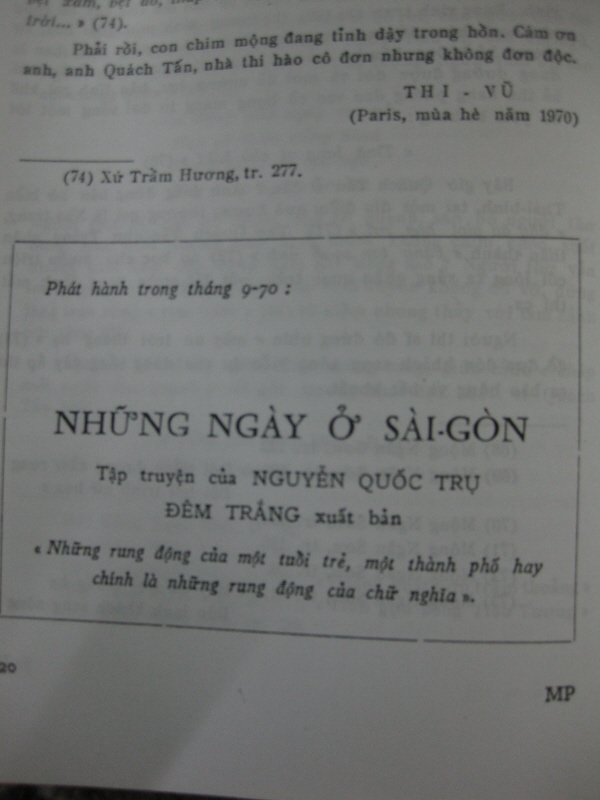
Mai thôi làm việc. Khi
chúng tôi chia tay nhau tại cầu thang, trong khi chờ thang
máy, đột nhiên nàng nói: "Tôi sợ, tôi
sợ lắm", nàng nói câu đó bằng tiếng Pháp.
Tôi mở cửa thang máy cho nàng và bỗng chợt
nhớ câu tôi hỏi vị bác sĩ người Pháp chữa trị
cho tôi, khi còn nằm trong nhà thương Grall:
Như vậy là chiến tranh đã
chấm dứt đối với tôi? (Est-ce que la guerre est finie pour moi?).
Tôi chờ đợi khi ra khỏi nhà
thương, khi đứng ở trước cổng nhà thương Grall nhìn ra
ngoài đời và khi đó chiến tranh đã
hết.
They wait for me-in wheelchairs, painfully,
or sometimes I imagine scared, or high
because they cannot bear it, naked thighs
exposed by paper gowns. They wait for me
while reading pamphlets on mammography,
or tattered, long-outdated magazines,
or maybe just the posters for vaccines
that promise if they follow what we say
they might live longer, long enough at least.
They wait for me, their palpitations racing,
their ghostly blood pressures silently rising,
their stomachs grumbling since they're told to fast,
their headaches like a sledgehammer. They wait
for me, their vision blurred, their hearing lost,
their appetites diminished. Baring breasts,
assessing wounds, I know that I'm too late.
-Rafael Campo
The Capacity of Speech
It is easy to be decent to speechless things.
To hang houses for the purple martins
To nest in. To bed down the horses under
The great white wing of the year's first snow.
To ensure the dog and cat are comfortable.
To set out suet for the backyard birds.
To put the poorly-shot, wounded deer down.
To nurse its orphaned fawn until its spots
Are gone. To sweep the spider into the glass
And tap it out into the grass. To blowout
The candle and save the moth from flame.
To trap the black bear and set it free.
To throw the thrashing brook trout back.
How easy it is to be decent
To things that lack the capacity of speech,
To feed and shelter whatever will never
Beg us or thank us or make us ashamed.
|
Trang NQT
art2all.net

Lô
cốt
trên
đê
làng
Thanh Trì,
Sơn Tây
|
|

